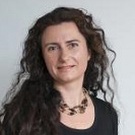 |
Marta Bianciardi, PhD
Assistant Professor of Radiology
Aging, brain mapping, brainstem, diffusion mri, evoked potentials visual, magnetic resonance imaging, Parkinson's disease, visual cortex, RBD.
|
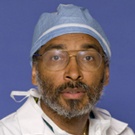 |
Emery Brown, MD, PhD
Professor of Anesthesia
Neural signal processing algorithms, anesthesia, hippocampus, electroencephalography, models neurological, neurons, propofol, neurophysiological definition of anesthesia, safer, site-specific anesthetic drugs, better methods for measuring depth of anesthesia.
|
|
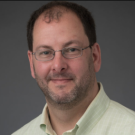
|
Randy Buckner, PhD
Professor of Psychology
Human brain network organization, genetic variation that affects behavior, including dysfunction in neuropsychiatric illness, long term actigraphy phenotyping, neurodegeneration, neuropsychiatric disorders, preclinical markers of disease. |
|

|
Catherine Chu, MD
Assistant Professor of Neurology
Epilepsy, sleep and learning in children, pediatric epilepsy, noninvasive biomarker discovery, seizure localization, functional brain networks, neonatal seizures and early onset epilepsy.
|
|

|
Andrew James Cole, MD
Professor of Neurology
Clinical neurology, epilepsy, clinical neurophysiology and basic neuroscience, electroencephalography, epilepsy, epilepsy, temporal lobe, seizures, status epilepticus.
|
|
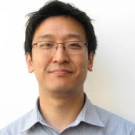
|
Lei Gao, MD
Instructor in Anesthesia
Circadian rhythm, cognition, computational neurosciences, neurotrauma, non-linear dynamics, sleep, traumatic brain injury, pain.
|
 |
Kun Hu, PhD
Associate Professor of Medicine
Multiscale regulatory patterns, integrative behaviors of systems, modern nonlinear dynamics tools for the assessment of the complex multiscale regulation in physiology and links to Alzheimer's Disease and neurodegeneration.
|
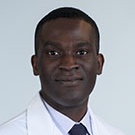 |
Oluwaseun Johnson-Akeju, MD
Associate Professor of Anaesthesia
Optimize post-operative cognitive recovery, overlap between sleep and anesthesia to develop new drugs devoid of neurocognitive deficits, and instead offer the restorative benefits of natural sleep to patients.
|
 |
Ksenia Kastanenka, PhD
Assistant Professor of Neurology
Mouse optogenetics, multiphoton microscopy imaging to monitor circuit dynamics with the aim to dissect the role neural activity plays in onset and development of Alzheimer’s disease, disruption of corticothalamic slow oscillations and sleep-dependent memory consolidation in AD. |
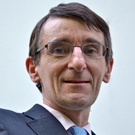 |
Thomas Kinane, MD
Associate Professor of Pediatrics/ Pulmonary Medicine
Molecular mechanisms underlying sleep disordered breathing in children, genetic basis, classification and treatment of interstitial disease.
|
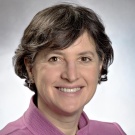 |
Elizabeth Klerman, MD, PhD
Associate Professor of Neurology
Application of sleep and circadian principles to MGH cinics, Sleep Phenotyping Core, interaction of endocrine, circadian and sleep rhythms in normal and pathological states and mathematical modeling of sleep, circadian system and markers of its function.
|
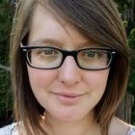 |
Jacqueline Lane, PhD
Instructor in Anesthesia
Genetic and molecular basis of circadian rhythm disorders. Genetics of chronotype and sleep. Assembling a new cohort study for genetics of extreme circadian rhythm disorder patients. Interest in wearable technology and databases.
|
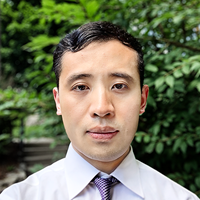 |
Peng Li, PhD
Instructor in Medicine
Physiological fluctuations, signal processing, data mining, human aging and aging-related degenerations, sleep, life style, autonomic function, and diseases.
|
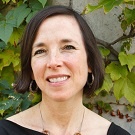 |
Dara Manoach, PhD
Professor of Psychology
Contribution of abnormal sleep to cognitive deficits in neuropsychiatric disorders, reduced sleep spindle activity in schizophrenia. Tools for spatial and temporal precision include behavioral studies, functional MRI (fMRI), diffusion tensor imaging (DTI), electroencephalography (EEG) and magnetoencephalography (MEG).
|
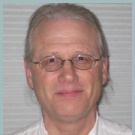 |
Edward Pace-Schott, PhD
Assistant Professor of Psychiatry
Sleep and Anxiety Disorders Laboratory uses polysomnography, fMRI, psychophysiology, self-report and related techniques to investigate how sleep helps humans regulate their emotions. Influence of sleep disturbance on the development of anxiety and traumatic-stress related disorders.
|
 |
Patrick Purdon, PhD
Associate Professor of Anesthesia
Anesthesia, biological clocks, biomedical signal processing, computers, eeg, eeg monitoring, electroencephalography, electrophysiology, magnetoencephalography, methyl ethers, numerical analysis computer-assisted, propofol, unconsciousness.
|
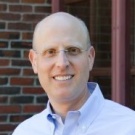 |
Jonathan Rosand, MD
Professor of Neurology
Co-Director, Henry and Allison McCance Center for Brain Health
Prevention of cerebrovascular disease and brain function during aging.
|
 |
Richa Saxena, PhD
Associate Professor of Anesthesia
Biological mechanisms underlying circadian rhythms and sleep disorders, and how the biological clock and sleep protect from chronic cardiometabolic and neurological disease. Tools include human genetics and genomics, functional biology in cellular models and translational cohort studies.
|
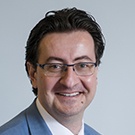 |
Aleks Videnovic, MD, MSc
Associate Professor of Neurology
Director, Mass General Division of Sleep Medicine
Clinical investigations in movement disorders. Research at interface of sleep, circadian biology and neurodegeneration, with an emphasis on movement disorders and REM Sleep Behavior Disorder.
|
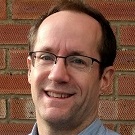 |
James Walker, PhD
Assistant Professor of Neurology
Drosophila modeling of human tumor suppressor syndromes and of human sleep disorder candidate genes. Tools include behavioral phenotyping, genetic, molecular and biochemical approaches.
|
 |
Brandon Westover, MD, PhD
Associate Professor of Neurology
Big Data and artificial intelligence to improve medical care for patients with anoxic brain injury, seizures and seizure-like brain states, cerebral ischemia, delirium, and sleep disorders, precision control of anesthesia in the ICU.
|
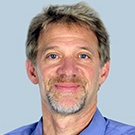 |
John Winkelman, MD, PhD
Professor of Psychiatry
Research focus on 1) epidemiology, physiology, cardiovascular consequences and treatment of restless legs syndrome, and 2) neurobiology and treatment of insomnia.
Keywords: gamma-aminobutyric acid, insomnia, major depressive disorder, mobile apps, noctural leg cramps, nocturnal myoclonus syndrome, opioids, polysomnography, restless legs syndrome, sleep, sleep initiation and maintenance disorders.
|






















